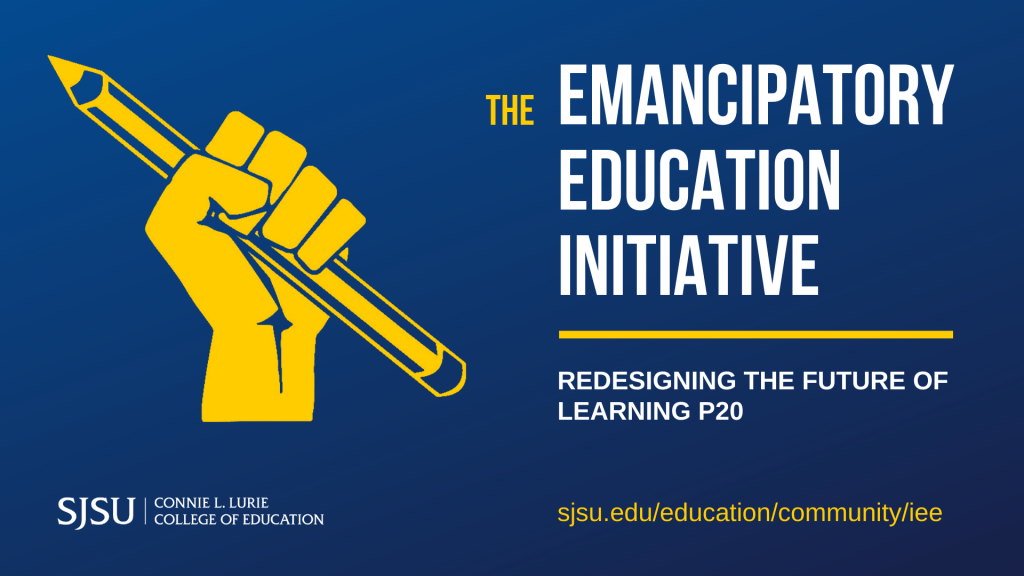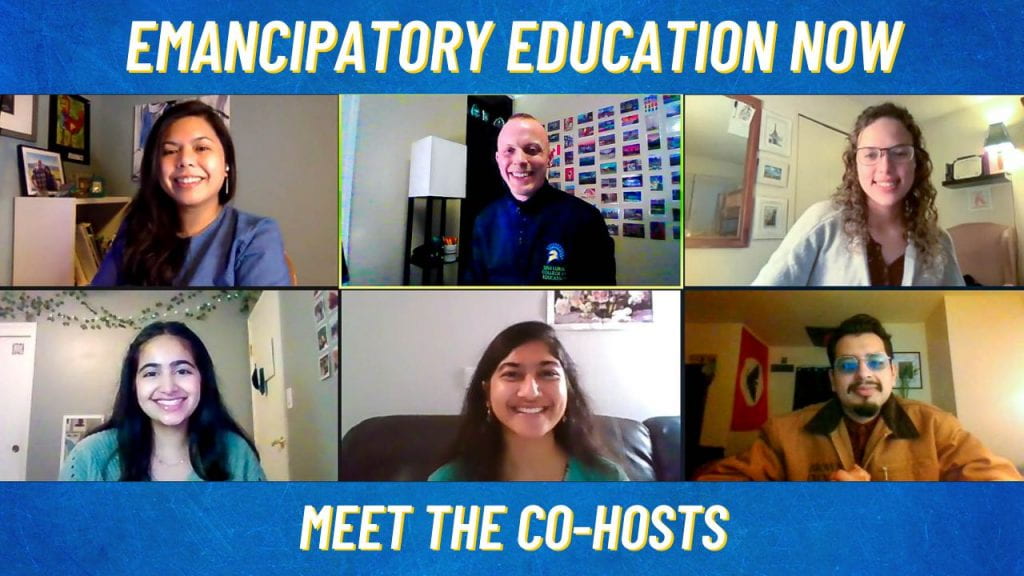 Recently I had the opportunity to offer welcome remarks at the kickoff event for our Lurie College of Education’s new Emancipatory Education Speaker Series, which focuses on a “post-COVID-19 education system.” What an important and timely initiative!
Recently I had the opportunity to offer welcome remarks at the kickoff event for our Lurie College of Education’s new Emancipatory Education Speaker Series, which focuses on a “post-COVID-19 education system.” What an important and timely initiative!
After listening to the first speaker, Dr. Gloria Ladson-Billings, I quickly realized how well-aligned this series is with San José State values, our academic goals and our Transformation 2030 strategic plan. Emancipatory education, in fact, is an approach that begins to put into practice some of the general education changes that we at SJSU have been discussing these past few years.
Part of our core mission at SJSU is educating a diverse student population for professional success and engagement in our democracy. The past year—particularly with our nation’s focus on racial justice and the January assault on the U.S. Capitol—has brought this theme into sharper focus and reminded us how urgently we need to prepare the next generation of leaders. Civic engagement cannot be viewed merely as a “nice-to-have” on the academic agenda; it must be a priority for educators.
So how we do this? How can we best ensure that we are effectively preparing our students to take steps upward on the ladder of opportunity, while also developing students who are encouraged and equipped to ask questions, form views based on equity and on their values and engage actively in some kind of public service?
It will require new, innovative approaches, I believe. As Carol Geary Schneider, president emerita of the Association of American Colleges and Universities, wrote in her forward to Elaine P. Maimon’s Leading Academic Change: Vision, Strategy, Transformation, it will require “comprehensive redesign, not just tinkering around the edges of standard educational practice, to help the nation’s aspiring new majority learners reap the full benefit of an empowering education.” She pointed out that centuries-old practices in higher education do not work for today’s students.
Our incoming students—particularly our incoming freshmen and those for whom a higher education environment may seem daunting and overwhelming—need to feel ownership in their own learning. Oftentimes, traditional practices and requirements stifle this need. We need to free our students of those bonds, empower them to design a learning framework that suits their individual needs and create a climate where all students feel a sense of belonging.
Emancipatory education may very well be part of the solution, and our Lurie College of Education is leading the charge.
The concept, which the College defines as “the critical evaluation of the systems and structures of oppression that maintain the status quo in our educational institutions,” may be a practical way for educators to reframe student and community engagement as an extension of the academic curriculum. If adopted, we may become even more effective at creating a successful, more civic-minded student population ready to engage and succeed in the world around us.
Lurie College’s Emancipatory Education Now initiative serves as a student-centric, hands-on complement to its speaker series. The college is providing a robust toolbox and an environment where true discourse and learning can occur, and I am delighted that such an exciting, out-of-the-box program has been designed by our faculty, students, Dean Lattimer and her staff. What a wonderful collaborative effort!
And, lest anyone think these are merely peripheral, extracurricular activities, I would also note that Lurie College admitted its first cohort of students in its new MA in Emancipatory School Leadership program last summer—meaning we will congratulate our first graduates in the program in just a few months. Lurie College is also now offering a new Minor in Transformative Leadership.
The need to transform higher education in this fashion is more dire today than ever before, as many are recognizing the need to change structural systems that have historically magnified inequalities and injustices to marginalized populations.
If the academic community truly is to embrace its role as public educators, it means we must rethink the design of our academic programs and focus on the intersection between general education and the major. It means we must reexamine course requirements for incoming freshmen, and think of interdisciplinary approaches that will challenge our students to place the problem at the center of their learning and work collaboratively to develop solutions. There is no better preparation for a future of impact and success. It means we must welcome—not resist—the notion that we are educating our students to participate in civic issues that matter to them, not merely preparing them for employment and careers.
It adds up to what we call the “public good” aspect of public education, and a way to challenge our students to become active and engaged members of our democracy and contribute to our overall civic health.
As we continue to examine ways in which we need to adjust or change altogether aspects of our academic curricula, we must seek to arrive at the optimal relationship between liberal arts and professional education, no matter the specific discipline pursued by our students. We must also utilize research—particularly interdisciplinary research—to foster the dynamic intellectual environment so important to supporting an engaged faculty and student body.
The great cultural anthropologist Margaret Mead once wrote, “Never doubt that a small group of thoughtful, committed, organized citizens can change the world; indeed, it’s the only thing that ever has.” How right she was!
Congratulations and much thanks to Dean Lattimer and the Lurie College of Education for helping to change the trajectory of higher education—and thus, the world—with the Emancipatory Education initiative.

